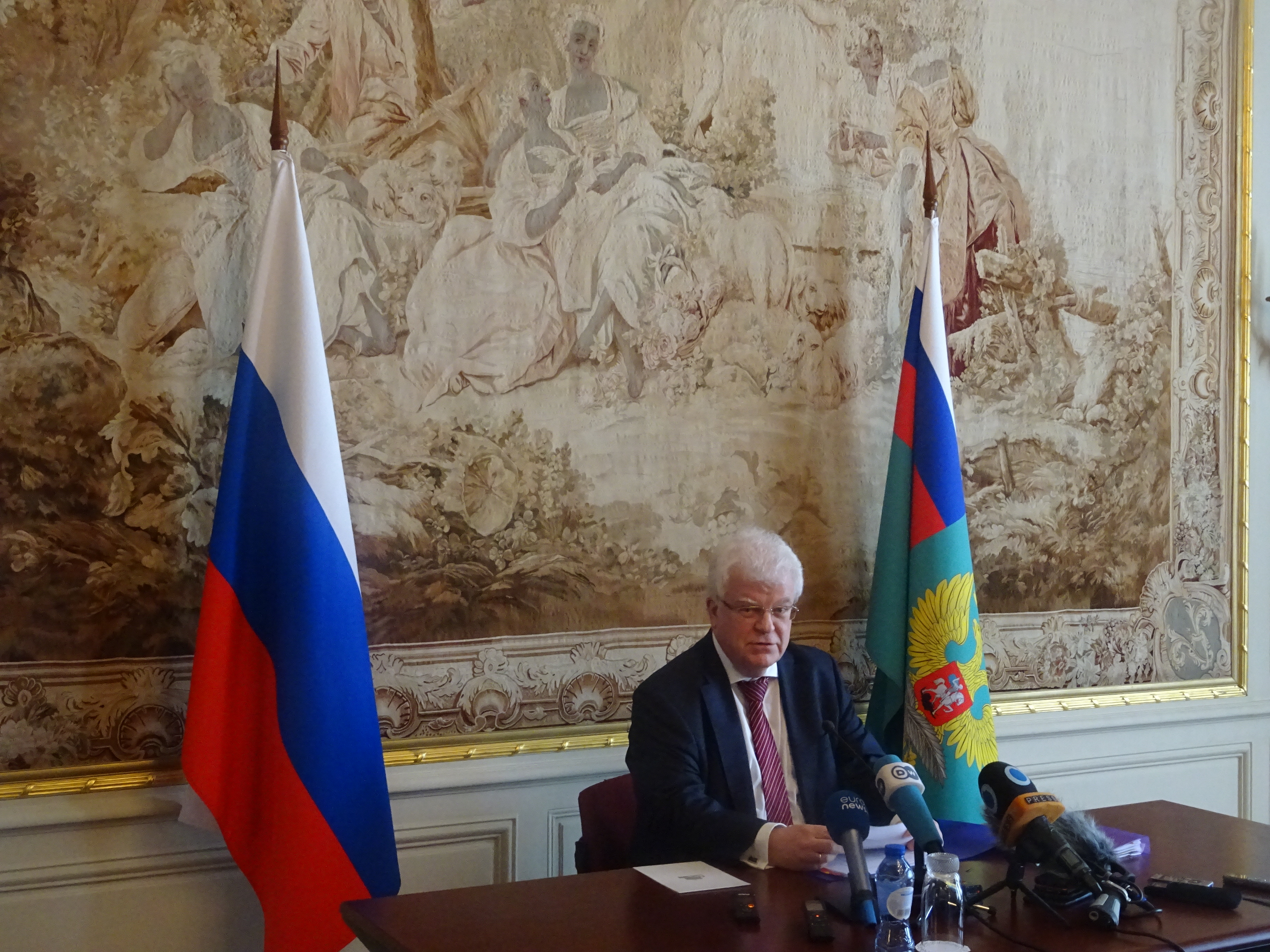LOC22:55
19:55 GMT
 Russian Ambassador to the EU, Vladimir Chizhov
Russian Ambassador to the EU, Vladimir Chizhov
BRUSSELS, June 17 (KUNA) -- Russia's top diplomat to the European Union expressed Moscow's support Monday to the Iran nuclear deal and dismissed US accusations that Tehran was responsible for the attacks against two oil tankers in the Gulf of Oman last week.
"We are doing everything we can to save the nuclear deal," Russia's ambassador in Brussels, Vladimir Chizhov, told a press conference held at the Russian embassy.
"I know the remaining five participants of the JCPOA are preparing a new meeting of the joint commission in the following days and weeks," he said.
"One important thing is to give impetus to this mechanism that the EU troika created called INSTEX which sounds good but has had a very difficult take off," he said.
Last February, France, Germany and the UK announced the launch of a mechanism for facilitating trade with Iran, a Special Purpose Vehicle (SPV) called an Instrument for Supporting Trade Exchanges (INSTEX).
However, INSTEX has still not entered into force.
The Joint Comprehensive Plan of Action (JCPOA) known commonly as the Iran nuclear deal, was signed in Vienna in July, 2015, between Iran, and the five permanent members of the UN Security China, France, Russia, United Kingdom, United States-plus Germany.
But the US pulled out form the deal in 2017.
Chivoz dismissed US claims that Iran was behind the attacks on two oil tankers in the Gulf of Oman last Thursday as "theatrical.
"Jumping to conclusions has always been a soft spot in US policies," he noted.
The Russian ambassador said that the Iran nuclear deal envisaged certain limits on production of low enriched uranium and heavy water by Iran.
It also provided that whatever amount of those two substances Iran might produce over the limit it would sell them abroad.
The Iranians put certain amount of heavy water for storage in Oman but the US has prohibited the rest of the world any transactions, which would involve buying Uranium and heavy water from Iran "thereby cutting this arrangement which was part of the JCPOA," he explained.
"The Omani government is under pressure from US to send that uranium back to Iran so that Iran involuntarily will be then under breach of those bench mark limitation," he said.
"So Iran has no option except to warn that they might be obliged not to limit themselves to the provision in the nuclear deal," said Chizov commenting on statement from Iran that it will cross on 27 June the limit on its stockpile of enriched uranium.
The Russian ambassador described the current state of relations between the EU and Russia as "disappointing and abnormal," and said Russia-US relations "are bad".
"They have deteriorated in the last few years," he added. (end)
nk.mb